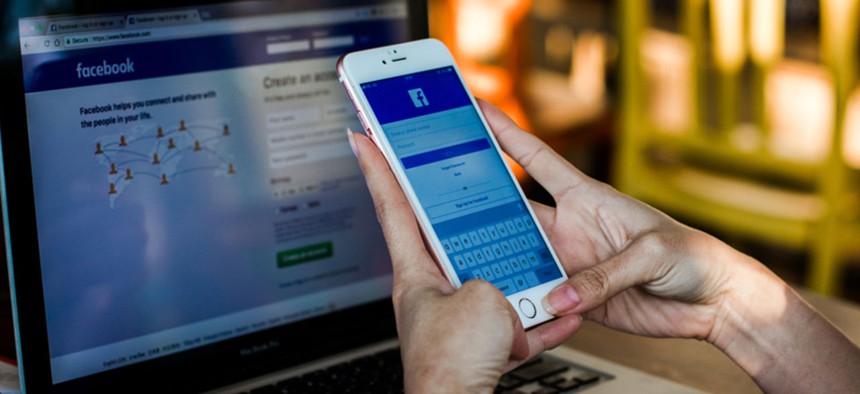
tongcom photographer / Shutterstock.com
Are People Who Don't Use Facebook More Productive?
We asked experts in professional networking, marketing, and office communication to weigh in.
Quitting Facebook (or at least, wanting to quit Facebook) is all the rage these days. We asked a panel of experts in networking, productivity, and workplace communication what you could give up, or gain, when you do.
Dr. Ben Waber, CEO and co-founder of Humanyze, a people analytics company that measures communication patterns
“In general, there’s no hard data showing that people who are on Facebook are more or less productive. There is an argument to be made, however, that some Facebook use at work is associated with higher performance: in one study Gloria Mark of UC Irvine showed that Facebook use at work is associated with a more positive mood at the end of the workday.
On the flip side, the same research group showed that interruptions increases stress, which in the long term has negative implications for turnover and performance. As with most things, moderation appears to be the greatest virtue.”
Kelly Hoey, Author of Build Your Dream Network
“For me, the most productive thing about Facebook has always been birthday reminders. The annoying, time-consuming task of transferring birthdates of friends and family to my personal calendar (or another app) might be the prime reason I haven’t deleted my account altogether (in spite of grave concerns over how Facebook uses our personal data). I’ve never been convinced that endless posting of whatever is on our minds (cat videos, complaints about exes, surveys to see what Friends character you’re most like etc.) is a particularly helpful way to bring us closer to our network or build community. When someone posts selectively (only the good stuff!) we accuse them of being posers. When someone continually shares what is really on their minds, they’re at risk of alienating “friends” or worse, subjecting those friends to an avalanche of snide side-conversations via Messenger. Being critical of others lives or inducing FOMO isn’t in any universe of productive motivation that I’m aware of.
The platform has never engendered a “post usefully and productively” community code of conduct. Self-regulating, it’s hit or miss. it’s why i’ve never turned on notifications and keep the app off of my phone. I do (somewhat reluctantly) belong to several Facebook groups and realize I only pay attention to and engage with the communities with ‘rules’ on what is posted. Dreamers & Doers is one example. A member-only group, the first rule of posting to the group starts with “Help Others.” The ethos of the IRL community is effectively bridged by the group manager to the online world. The community is generous: by abiding by the posting rules, questions get answered and nobody’s time is wasted.”
Tiago Forte, Founder of Forte Labs, a productivity training firm
“I don’t think having or not having a Facebook (or any other social media) account has anything to do with how productive someone is. You can shut down one source of distractions, but if the fundamental aversion to your work that is driving you to distraction is still in place, you’ll find something else.
It isn’t a tool that determines your state of mind at work, but the mental models, habits, methods, and experience you bring to bear. Facebook is a powerful tool for building community, scheduling events, sharing knowledge, and having discussions with friends. That doesn’t mean it’s indispensable, but I do think it’s worth considering that Facebook is not inherently productive or unproductive. It is a tool like any other, and how it is used depends on the intentions and self-awareness of the person using it.”
Leslie Peters, Author of Finding Time to Lead: Seven Practices to Unleash Outrageous Potential
“My first reaction is a resounding, “YES.” But, like most questions, it’s more complicated than that. For me personally, a “quick” check in with Facebook is nearly impossible. If I check Facebook, it has to be late at night when everything else is finished (which, of course, pretty much never happens). It’s kind of a guilty pleasure… and then sometimes it’s not a pleasure at all. Sometimes it’s just overwhelming. Using Facebook definitely makes me less productive.
For people who use it a lot, though, and for people who actually use it for their work, it can be productive. A quick check-in is possible for people who use Facebook regularly, because they’re caught up; they don’t need to scroll through days of posts. And for people who use Facebook for their work, posting and paying attention to who responds provides access to their customers. In that case, time on Facebook is their work. So my answer to this question is it depends. If that’s too much of a cop out, then I’ll stand by my initial response … YES.”






